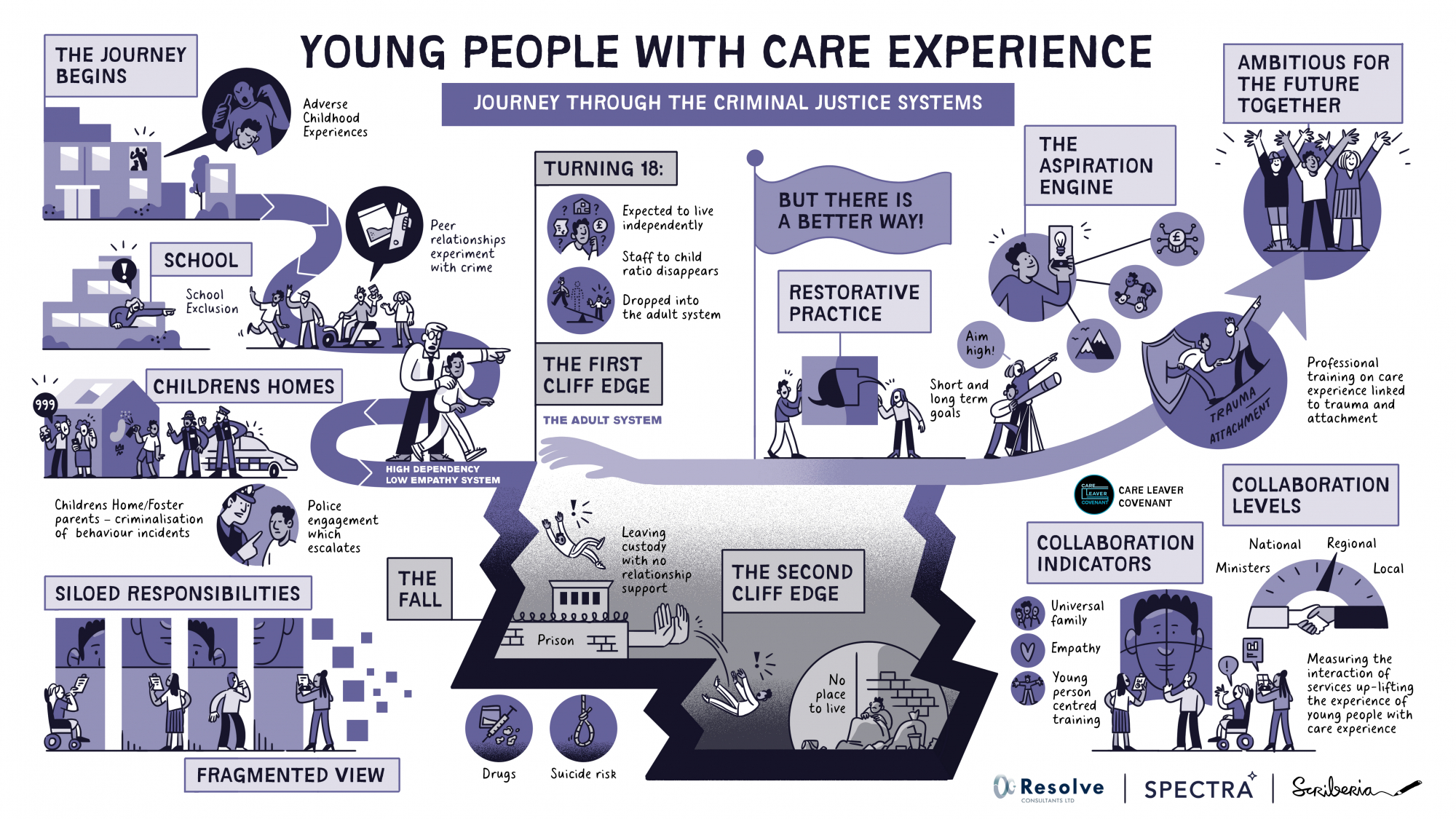
Young People with Care Experience: Journy Through The Criminal Justice System
System solutions identified by Resolve and championed by Spectra included the use of restorative practice to create a more empathetic experience when professionals engage with young people with care experience.
SpectraConnect which are the UK government’s chosen provider for overseeing the Care Leaver Covenant, which is a national inclusion programme for 16 to 25 years leaving care to encourage support for this group by public, private and voluntary sectors.
The CEO of SpectraConnect set Resolve Consultants the task of understanding the journey of young people through the criminal justice system. The findings of this mapping exercise would be present to a cross-ministerial meeting to support the implementation of system change.
What was not expected was a the identification of “The Second Cliff Edge” in which young people with care experience enter custody and the total lack of support for them when leaving meant that their life experience and opportunities meant sub-optimal life of drugs, reincarceration or suicide. What was also clear was the willingness of individual professionals to make a difference and a strong desire to change this trajectory. Yet, there was a recognition that the system itself perpetuated these dire experiences.
System solutions identified by Resolve and championed by Spectra included the use of restorative practice to create a more empathetic experience when professionals engage with young people with care experience. This would reduce the feeling that professionals were only interested in a “tick box exercise” and allow young people to be at the heart of the decision-making process.
A second recommendation was to build an “aspiration engine” for young people with care experience as it was clear that although professionals cared about young people there was a lack of long-term aspiration with the present focus on course, interventions or activities rather supporting young people with long term career prospects. The creation of an “aspiration engine” would have a longer term focus on the motivations, ambition and opportunities for young people with care experience. This would require professionals from across they system to come together to share information and be creative in seeking to inspire young people to achieve longer term goals.
The opportunity to work with SpectraConnect on such an important project showcase has Resolve seeks to implement system change. One of the most validating aspects was presenting back the findings and visualisation where adults disclosed their care experience and said how well it reflected their own experiences and journeys. Resolve continues to work with SpectraConnect to champion system change for young people with care experience.
